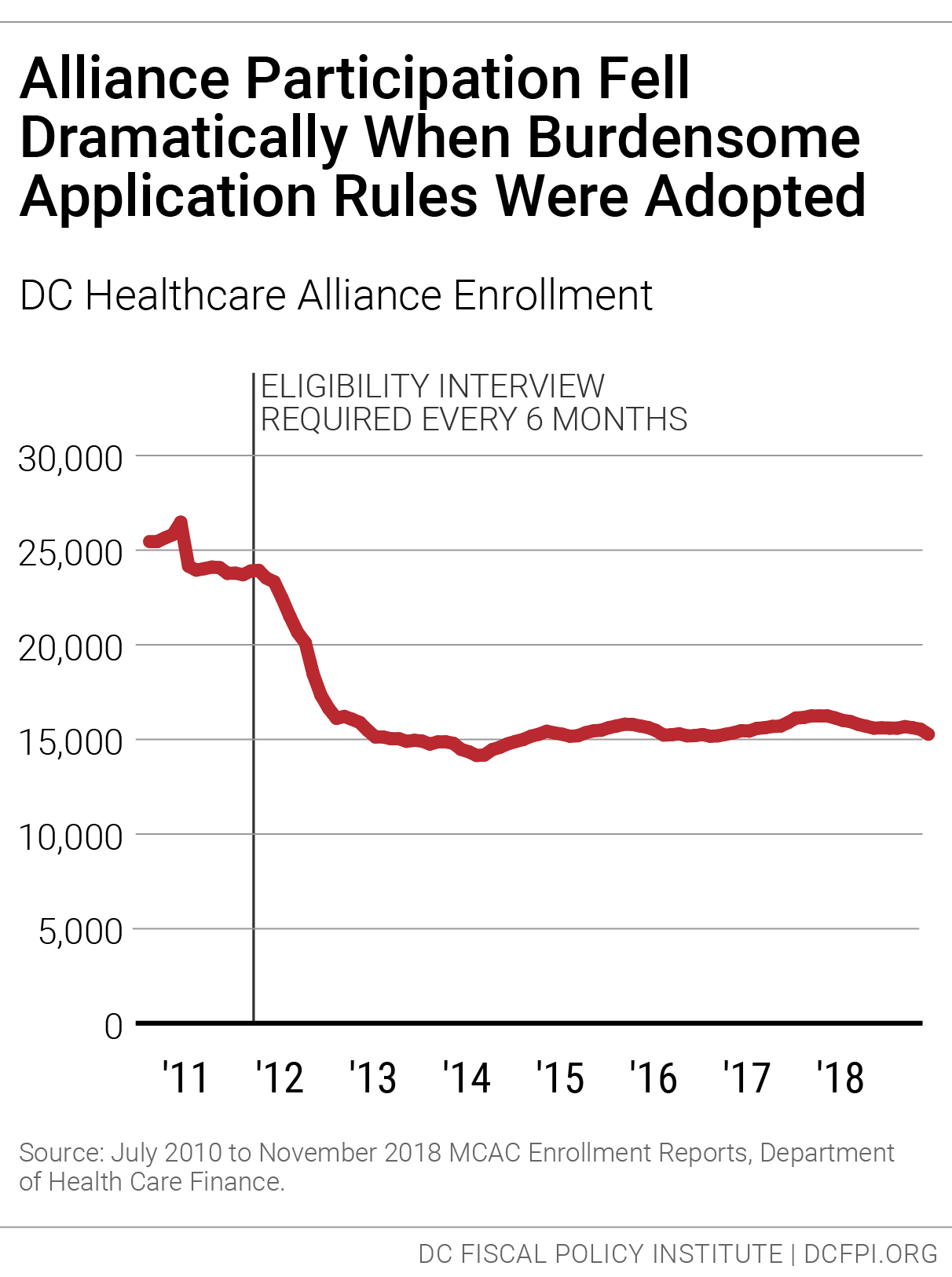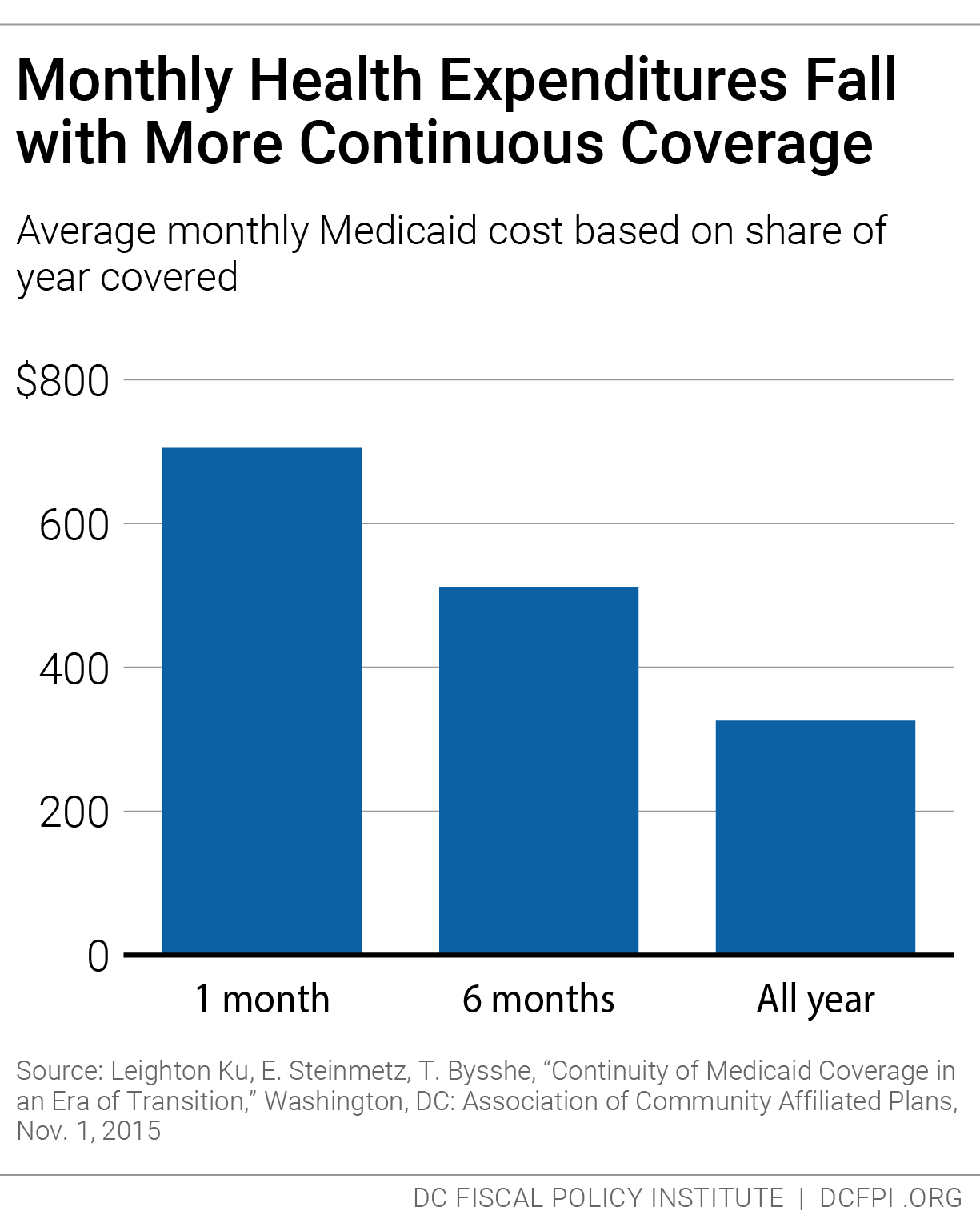DC imposes barriers on residents trying to access health insurance through the DC Healthcare Alliance—a program providing medical assistance for low-income residents, primarily serving immigrants. These barriers contribute to both poor health outcomes and unnecessarily high program costs. The Council should use the fiscal year (FY) 2021 budget to remove these barriers to ensure access to health care for all DC residents and to build a just recovery.
Since 2011, Alliance participants have had to visit a DC social service center every six months to maintain their eligibility, instead of the annual recertification most DC benefit programs have. This requirement immediately led to a sharp drop in participation (Figure 1). Today, thousands of residents who should have health insurance do not, and the uninsured rate is much higher among Latinx DC residents[1] than others.

Research confirms that short recertification periods lead to a high rate of churn. Given that many Alliance members are working at jobs without paid leave and that visiting a social service center can take an entire day or longer, it’s not surprising that many do not renew their benefits. Imagine having to visit the DMV in person every six months to keep your driver’s license.
Churn from frequent recertification increases health program costs because it limits access to preventive care, which means participants often are sicker when they re-enroll, and because sicker residents are most willing to go through the process of maintaining coverage. Healthcare Alliance costs have doubled in the past four years, even though participation has not grown. The cost increases also appear to reflect other factors, including a growing number of older participants.
Replacing the six-month in-person Alliance requirement with a one-year recertification requirement would improve health outcomes for DC’s immigrants and reduce monthly per-person program costs as residents receive better care and as healthier residents, currently discouraged from staying on, are able to maintain coverage. Research from Medicaid, for example, shows that average health care costs go down the longer participants have coverage (Figure 2).

Given the current COVID-19 crisis, the District is doing all it can to ensure that as many residents as possible have access to insurance and that access is as easy as possible. We thank the Mayor for ensuring that no one loses eligibility during the public health crisis, but we need the permanent removal of the six-month certification period to build a just recovery.
DC has been a leader in expanding health insurance coverage to improve resident health and reduce health disparities. Eliminating barriers to care is a critical component of those important District goals and would go a long way towards affirming support for our immigrant neighbors.
[1] Jodi Kwarciany, “DC Has Disparities in Health Coverage Despite Its Low Uninsured Rate,” DC Fiscal Policy Institute, revised September 25, 2017, https://www.dcfpi.org/all/dc-disparities-health-coverage-despite-low-uninsured-rate/
